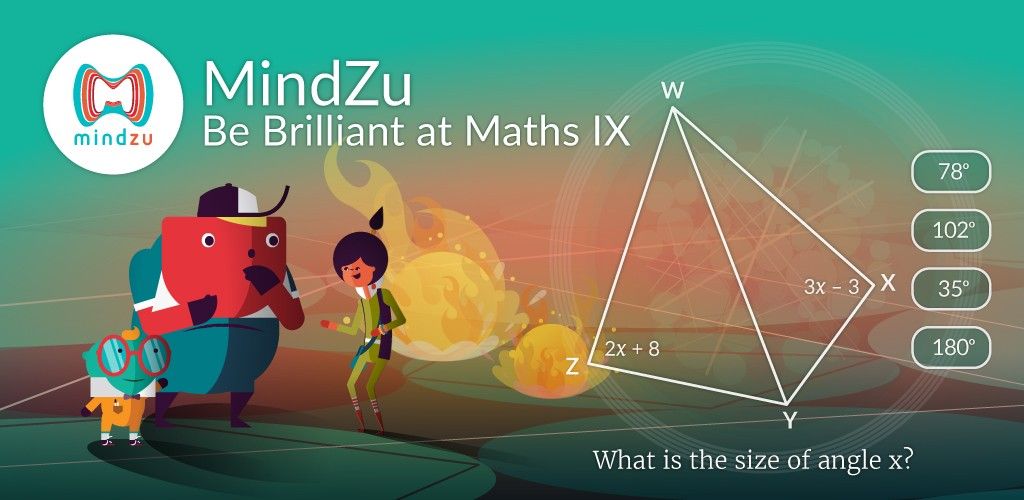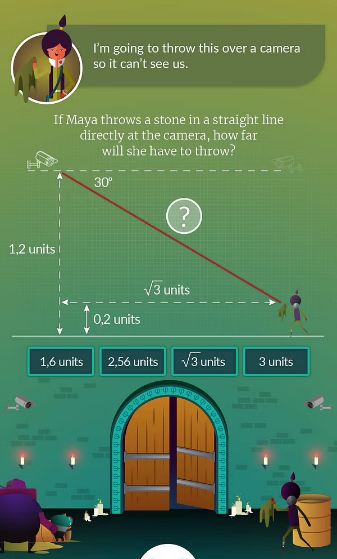MindZu is Revolutionizing Maths Educations for 9th Graders in a Fun Way

Math education and learning technologies have far more potential than just making calculations faster. A closer look at the potent characteristics of an Edtech startup like MindZu can simply explain the phenomenon. Studies have revealed that students who used math programs regularly performed noticeably better on examinations than those who did not.
As a result of Edtechs’ ability to offer educational resources for others to use and rely on the platform, difficult mathematical ideas can now be more easily understood and visualized by users. Its quick installation and remarkable simplicity doesn’t take a lot of time to teach students or teachers how to use it effectively. Math is available at your fingertips, and you don’t need to be an expert in complex programming languages to use it. It can be as simple or challenging as your class requires.
Godfrey Parkin launched MindZu in 2019 with the aim of disrupting online STEM education globally. MindZu makes the best education available to everyone at reduced cost, particularly in underdeveloped nations. Innovative, gamified apps from MindZu help high school students excel in STEM. Its educational experiences are masterfully designed and take place in a virtual setting with lively characters. MindZu requires no hardware or infrastructure in the school, is infinitely scalable, and has very low variable expenses.
According to Angaza’s CEO, Godfrey Parkin, classrooms have served as safe laboratories for so long that they now serve as time capsules. After a decade or more, entering the actual world feels strange and disorienting, like one has arrived in the future. He asserts that children should be better prepared for the fast changing environment in which they will have to succeed, and MindZu is their response to this problem.
How MindZu Operates
When utilized properly, math apps’ intrinsic visual character can even be a benefit to kids with dyscalculia. Visualization is possibly the most important word that most Edtech startups share. A multinational team of 25 educational writers, game developers, instructional designers, animators, and user experience professionals from Italy, Portugal, Russia, South Africa, Tanzania, Ireland, and India have spent years developing MindZu.

The curriculum has been transformed into interactive missions by MindZu. Each includes a story-based, fully annotated, animated lesson; self-test practice sessions; difficult games; and inspiring remediation. Strong pedagogy and a clever performance management system are the driving forces behind everything. The site creates courses that are a small percentage of the size of typical videos and makes them downloaded so they may be listened repeatedly without paying repeat streaming fees.
MindZu leverages gamification process to thread continuous motivational engagement throughout the learning experience. Gamified learning takes advantage of the intense positive focus the platform wants to exert in expectation of a relatively quick psychological reward. MindZu’s gamification process makes scoring system entertaining or intriguing and incorporates rewards like badges or bragging rights.
“Gamification in education not only amplifies learning, but it also gets the brain optimizing its wiring to solve future problems. Learning through game-play has always been a celebrated mechanism in early childhood education. But a profound presence of gamification in high school education is rare. The closer education gets to major national exams, the less engaging it becomes,” said Parkin.
The Ouut’s Take
Most students struggle greatly to understand mathematical concepts, such as how to link a number to its matching word or how to maintain track of numbers while they go through a multi-step task. Anyone can benefit from a platform that helps put those ideas into a visual format, and students who are starting out at a disadvantage will benefit the most from it. Thanks to specially created learning games like MindZu, numbers may no longer seem abstract to students.
A well-designed math app aids in seeing the correlation between a number and a tangible quantity of items, or between formulas and lines and shapes on a graph. In the hands of a good teacher, such a tool can result in true understanding of the underlying mathematical concepts, as opposed to rote memorization of rules and tables that mean nothing to the student.
